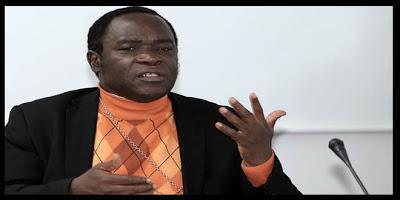
The Bishop of Catholic Diocese of Sokoto, Most Rev. Matthew Kukah, has reacted to the agitation for an independent state of Biafra led by the leader of the Indigenous People of Biafra (IPOB), Nnamdi Kanu.
The cleric alluded to one of Biblical stories of the Israelites to describe the question of Nigeria’s unity.
According to him, the situation in Nigeria can be likened to when the Israelites stood before the Red Sea during their exit from captivity.
He said: “We cannot recover territory from Boko Haram only to surrender it to others; we are Nigeria and Nigeria will continue to remain.
“This country belongs to all of us and I think it is important for us to understand that while the protester must have his voice, the one in power must also have his voice.
“We are before the red sea; this either be Nigeria`s best or worst moment. It is time for us to realize our collective vulnerability.”
Kukah stated this in Abuja at a national dialogue organized by the Savannah Centre for Diplomacy Democracy and Development.
He said the reason everyone existed in the country was because there was a Nigeria, and said that while Nigeria could exist without us, we could not exist without the country.
The Bishop added that the challenge to all should be how to make Nigeria great, stressing that all stakeholders should work to ensure that.
He expressed regret that the patriotism of most public office holders ended as soon as they were out of office.
“Ministers become so patriotic when they are in office and I have seen them come down; no sooner had they lost their positions than their patriotism ended,’’ he said.
Kukah decried the country`s present state and said that the political class should have seen it coming.
“The political class has no time to reflect; we fumble and fumble through problems and we just think that the problems will go away,’’ he said.
He said that it was time that some contradictions in the country were addressed.
According to him, though we are in civilian administration, the country`s public space has been increasingly dominated by those trained to use monopolised and declared violence.
The cleric pointed out that Nigerians did not just decide to become violent but that there was a direct correlation between the movement of small arms and how armed robbers got arms.
These, he said, were some of the contradictions that led to the country`s present challenges, adding that some states lacked the capacity to address some issues of development.







